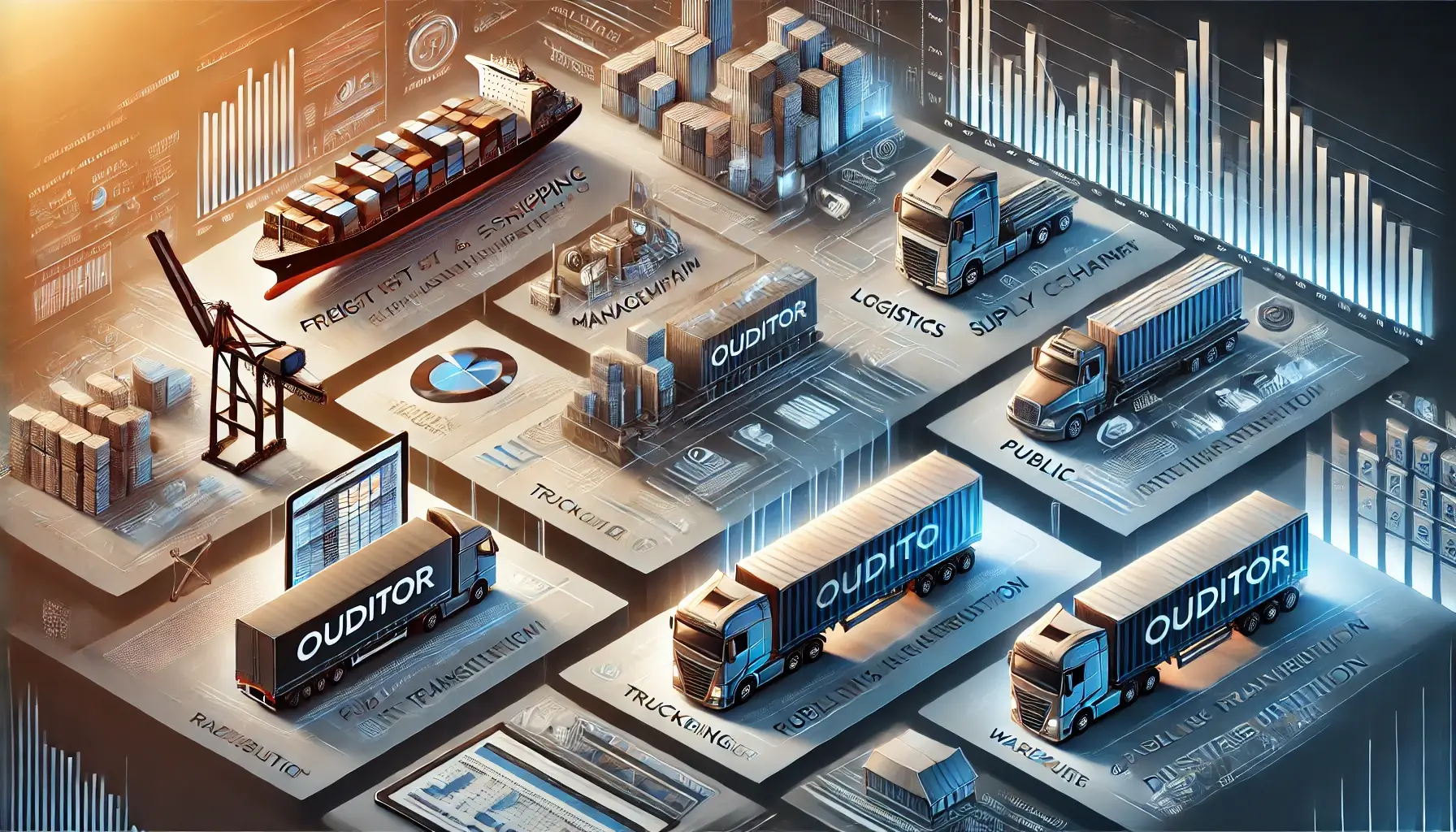In the fast-paced world of distribution, managing costs efficiently is essential for maintaining profitability and ensuring operational success. Distribution costs can significantly impact the bottom line, encompassing various expenses such as transportation, warehousing, labor, and packaging. To stay competitive and maximize profitability, businesses need a comprehensive approach to tracking and managing these costs. Ouditor Financial Suite offers a robust solution for addressing these challenges through its advanced accounting and financial management tools. Here’s how Ouditor can help you effectively track and manage distribution costs.
Understanding Distribution Costs
Distribution costs are the expenses associated with getting products from manufacturers to end-users. These costs can be broken down into several categories:
-
Transportation Costs: Expenses related to shipping and delivery, including fuel, vehicle maintenance, and freight charges.
-
Warehousing Costs: Costs incurred for storing inventory, such as rent, utilities, and labor for warehouse staff.
-
Labor Costs: Wages and benefits for employees involved in distribution activities, including warehouse workers, drivers, and logistics coordinators.
-
Packaging Costs: Expenses for packaging materials and processes to ensure products are protected during transportation and handling.
-
Administrative Costs: Costs related to managing distribution activities, including order processing, inventory management, and customer service.
-
Handling Fees: Fees associated with the handling and movement of goods within the warehouse and during transit.
How Ouditor Enhances Cost Tracking and Management
Ouditor Financial Suite provides a comprehensive set of tools designed to streamline the tracking and management of distribution costs. Here’s how Ouditor supports your cost management efforts:
1. Real-Time Expense Tracking: Ouditor offers real-time expense tracking, allowing you to monitor all distribution-related expenses as they occur. This real-time visibility helps you stay on top of your spending and identify any deviations from the budget early on. By having up-to-date information on costs, you can make informed decisions and take corrective actions as needed.
2. Detailed Cost Categorization: Ouditor’s accounting software allows you to categorize and allocate distribution costs accurately. Whether it’s transportation, warehousing, or labor costs, you can break down expenses into detailed categories and subcategories. This granularity enables better analysis and understanding of where your money is going and helps identify areas for cost reduction.
3. Automated Invoice Management: Efficient management of invoices is crucial for controlling distribution costs. Ouditor automates the invoice processing workflow, from receipt and verification to approval and payment. Automated invoice management reduces the risk of errors, delays, and disputes, ensuring that you pay only what is necessary and avoiding unnecessary costs.
4. Comprehensive Financial Reporting: Ouditor provides detailed financial reports that offer insights into your distribution costs. Customizable reports and dashboards allow you to analyze cost trends, compare expenses against budgets, and assess financial performance. These reports help you identify cost-saving opportunities and make data-driven decisions to optimize your distribution operations.
5. Budgeting and Forecasting: Effective budgeting and forecasting are essential for managing distribution costs. Ouditor’s advanced forecasting tools use historical data and market trends to create accurate budgets and financial projections. This capability helps you plan for future expenses, anticipate cost fluctuations, and allocate resources more efficiently.
6. Expense Analysis and Optimization: Ouditor’s expense analysis tools help you evaluate and optimize distribution costs. By analyzing spending patterns and comparing costs across different categories, you can identify inefficiencies and implement cost-saving measures. This analysis supports continuous improvement and helps you achieve better financial control.
7. Integration with Distribution Systems: Ouditor integrates with various distribution and logistics systems, providing a seamless flow of data between your financial management and distribution operations. This integration ensures that all cost-related information is accurately captured and reflected in your financial records, reducing the risk of discrepancies and improving overall cost management.
8. Compliance and Audit Trails: Maintaining compliance with financial regulations and industry standards is crucial for managing distribution costs. Ouditor’s audit trails provide detailed records of all financial transactions, including cost allocations, approvals, and adjustments. This transparency supports compliance management and simplifies the audit process, ensuring that you meet regulatory requirements and avoid potential issues.
9. Supplier and Vendor Management: Effective supplier and vendor management is essential for controlling distribution costs. Ouditor helps you track and manage supplier performance, including pricing, delivery terms, and contract compliance. By maintaining strong relationships with suppliers and monitoring their performance, you can negotiate better terms and reduce overall distribution expenses.
10. Enhanced Data Security: Protecting financial data is critical for maintaining cost control and ensuring the integrity of your financial records. Ouditor’s robust security features safeguard your data against unauthorized access and fraud, ensuring that your cost management efforts are secure and reliable.
Benefits of Using Ouditor for Distribution Cost Management
1. Improved Cost Visibility: Real-time tracking and detailed categorization provide better visibility into distribution costs, enabling you to manage expenses more effectively.
2. Enhanced Financial Control: Automated invoice management and comprehensive reporting enhance financial control, helping to reduce errors and optimize spending.
3. Better Budgeting and Forecasting: Advanced forecasting tools support accurate budgeting and resource allocation, helping you plan for future costs and mitigate financial risks.
4. Efficient Expense Analysis: Expense analysis tools help identify cost-saving opportunities and optimize spending, supporting continuous improvement and better financial management.
5. Streamlined Compliance: Detailed audit trails and compliance features ensure adherence to regulatory requirements, simplifying audits and reducing the risk of non-compliance.
6. Stronger Supplier Relationships: Tracking and managing supplier performance help negotiate better terms and control distribution costs more effectively.
7. Secure Financial Data: Robust data security features protect your financial information, maintaining the integrity of your cost management efforts.
Conclusion
Tracking and managing distribution costs is crucial for maintaining profitability and operational efficiency in the distribution industry. Ouditor Financial Suite offers a comprehensive solution for addressing these challenges through its advanced financial management tools. By leveraging Ouditor’s real-time tracking, detailed reporting, and budgeting capabilities, you can gain better control over distribution expenses, identify cost-saving opportunities, and ensure financial stability.

